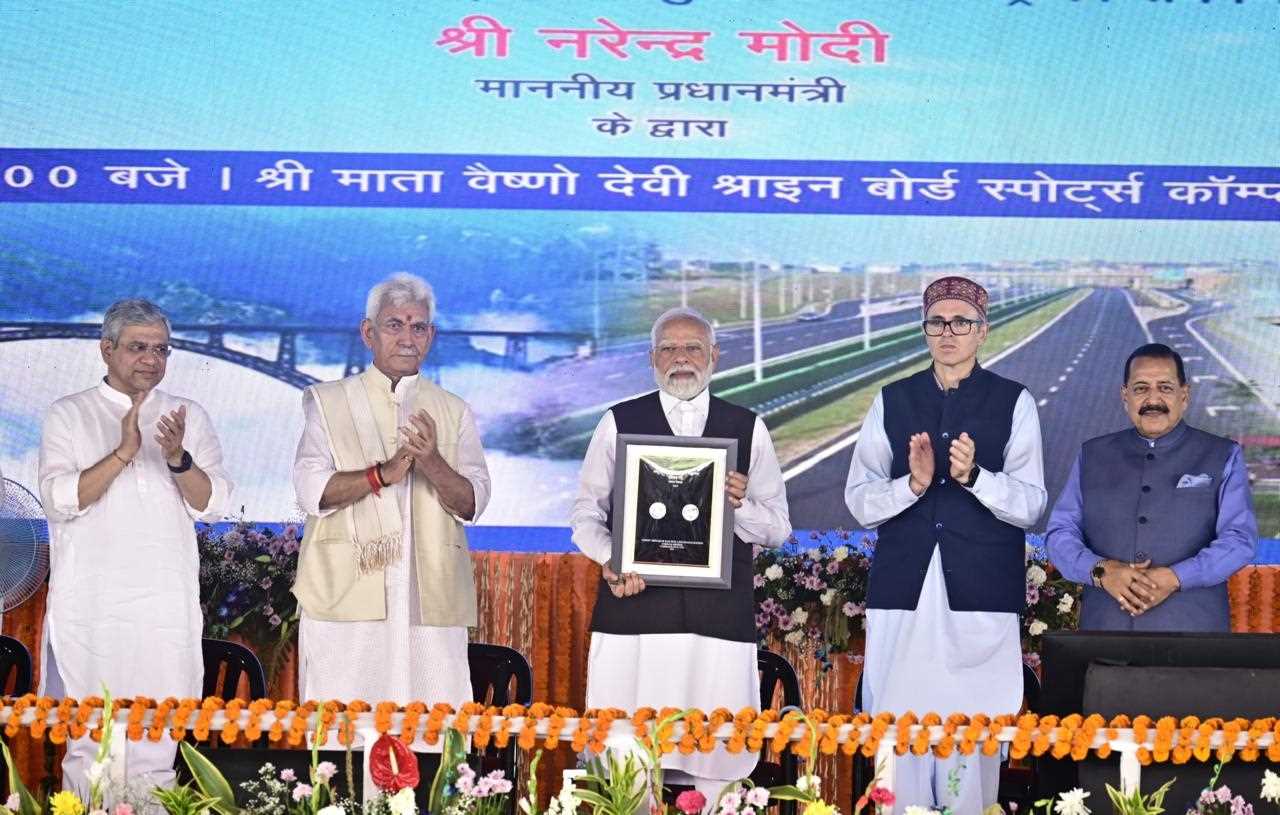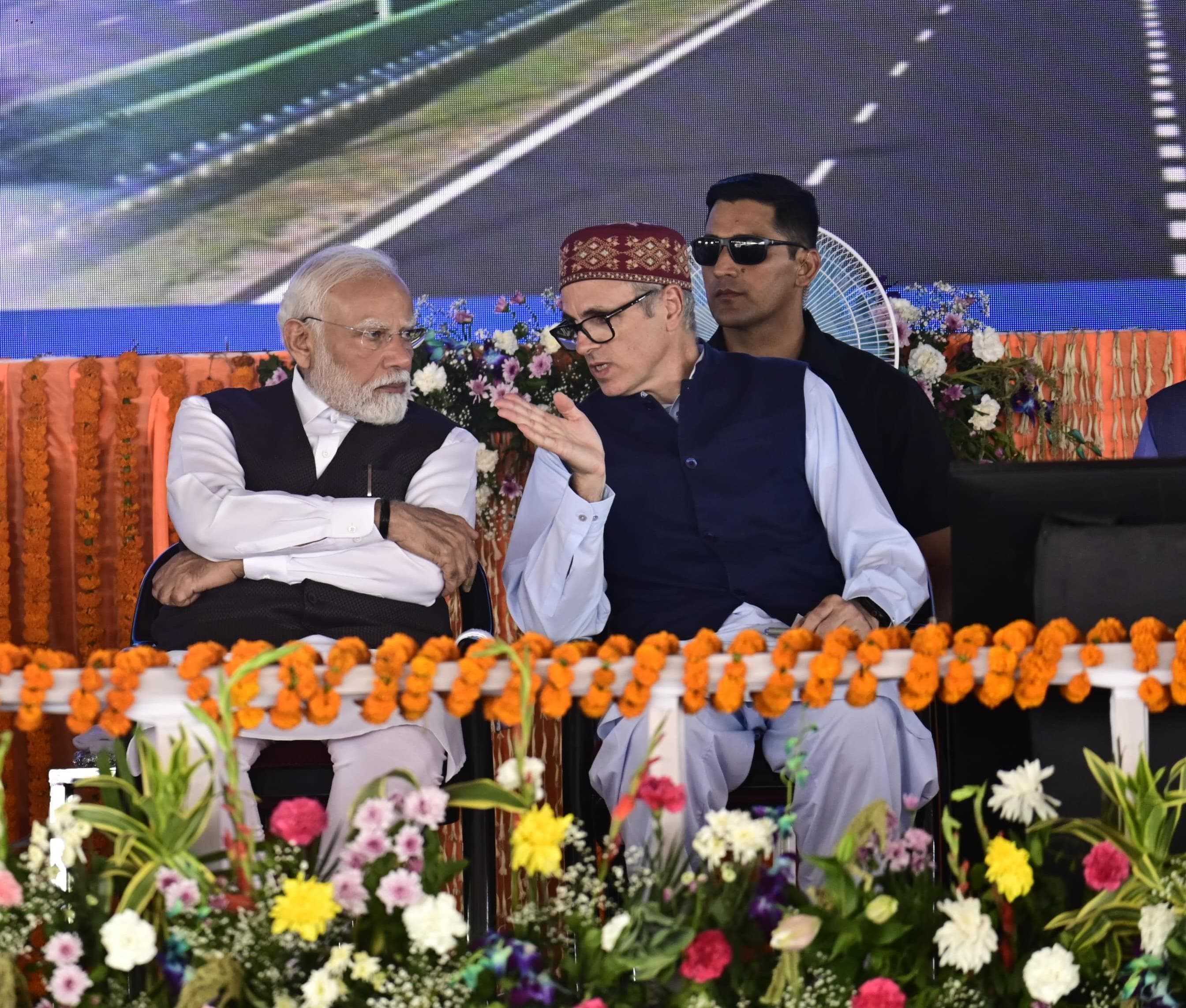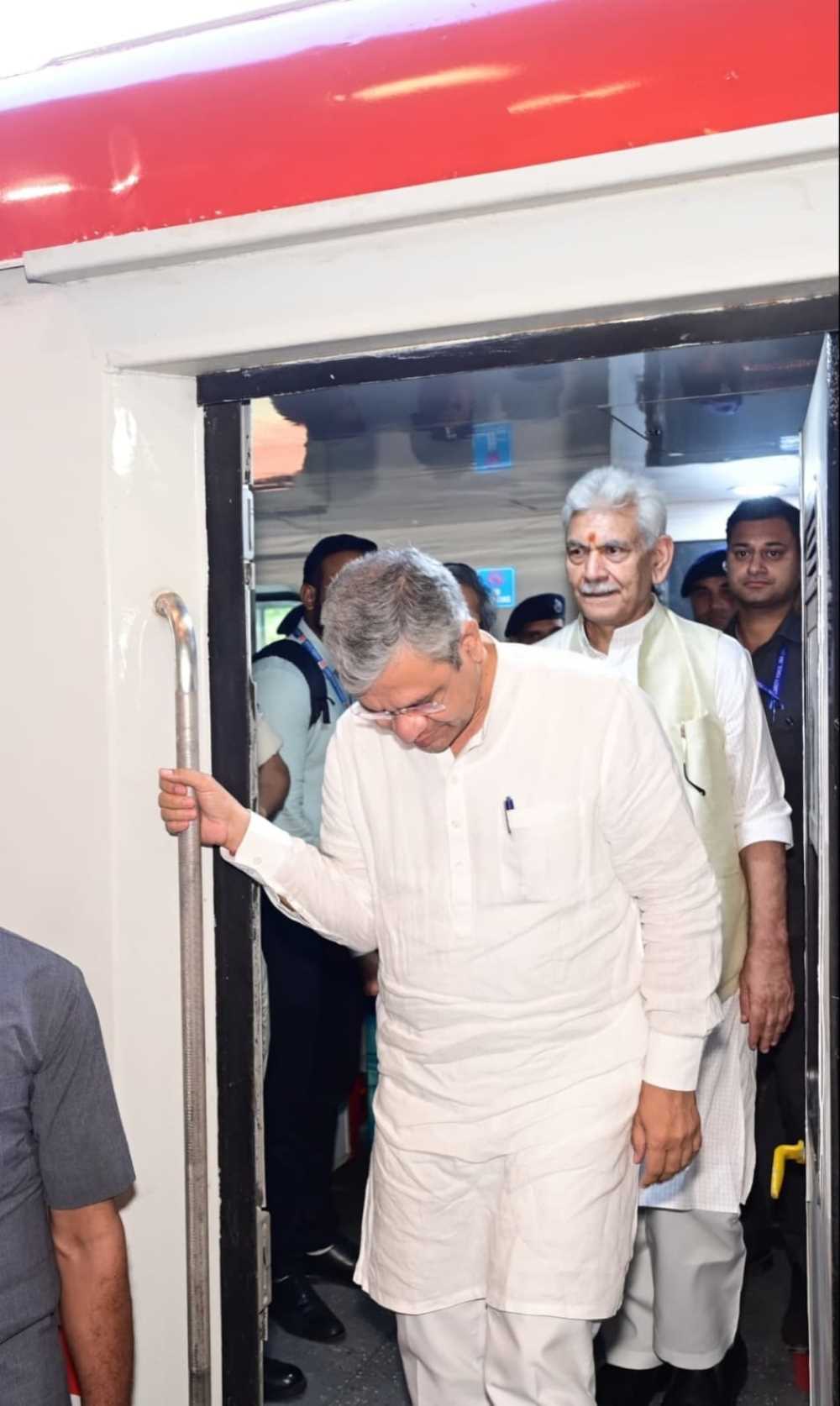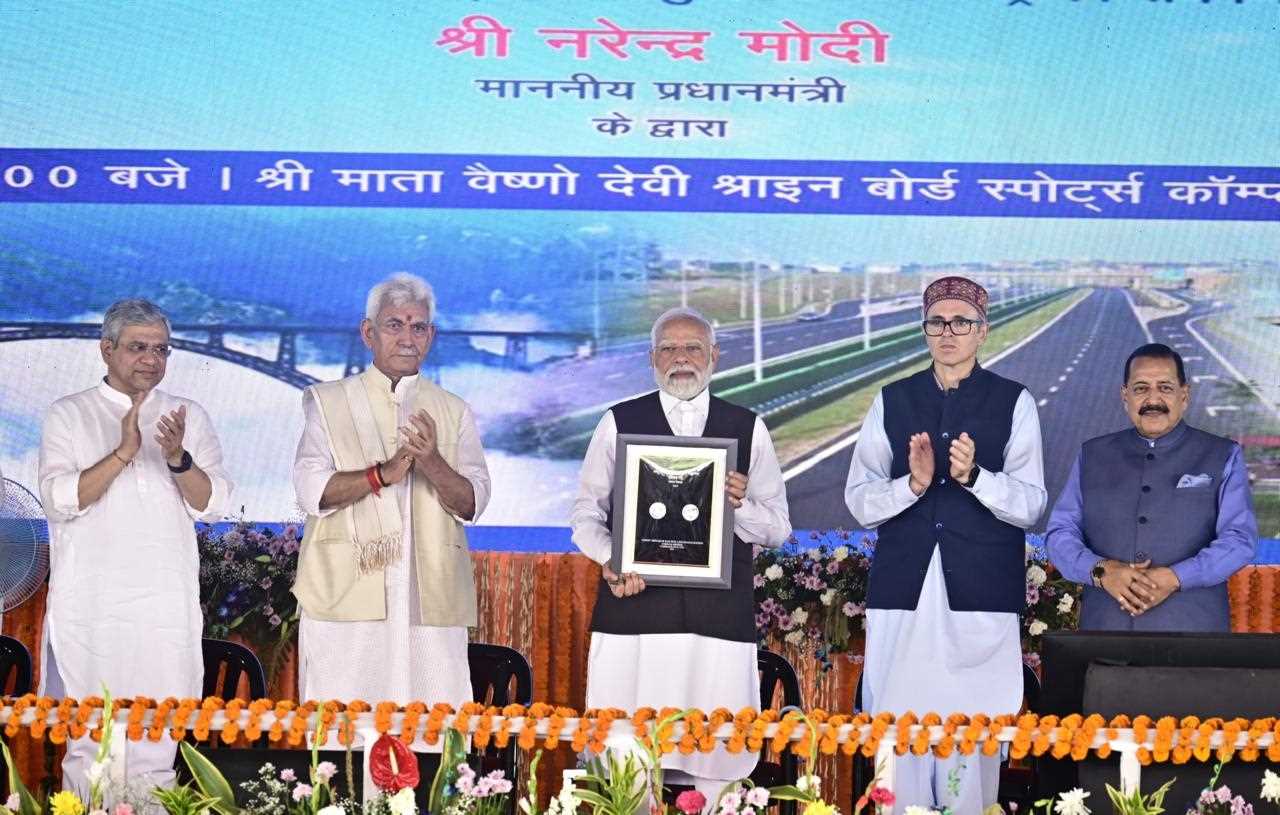Emphasizing that the fight against pollution begins with introspection about how we are contributing for protection of environment, Central University of Kashmir (CUKashmir) Vice-Chancellor, Prof. A Ravinder Nath, Wednesday highlighted the principle of net zero pollution and advocated for a circular economy where products are reused, recycled, and repurposed rather than discarded.
Addressing the participants, during the celebration of the “World Environment Day,” on the theme “Ending Plastic Pollution Globally,” jointly organised by the Schools of Life Sciences and Physical and Chemical Sciences of the university, Prof. A Ravinder Nath, said, “Though plastic is embedded in modern life, its indiscriminate use and disposal is what causes damage to the fragile environment. The focus should be on responsibility and innovation.” “We are all stakeholders in the environment,” he noted,
Prof. A Ravinder Nath connected sustainability with broader developmental goals—planet, people, profit, partnership, and peace—linking them to Sustainable Development Goals, and encouraged academic institutions to be role models in innovation, outreach, and research to model localized projects—particularly tackling plastic pollution in and around the Ganderbal region.
In his keynote address, Prof. Chandrashekhar Jha, former Chief General Manager, National Remote Sensing Center, Indian Space Research Organisations-ISRO, made a detailed presentation about the theme and traced the evolution of global environmental thought, referencing the Stockholm Conference of 1972 and India’s early commitment to ecological diplomacy.
He warned that plastic pollution knows no bounds, reaching from the Mariana Trench to Mt. Everest, and even entering human tissues in the form of microplastics, thereby threatening physiological processes. Prof. Chandrashekhar Jha shared insights on ISRO’s use of remote sensing technologies to track ecological degradation in the Indian Himalayan region, including Kashmir.
“We need to recalibrate the interaction with nature,” Prof. Jha said and discussed the ecosystem goods and services and the impact of plastic pollution across the length and breadth. Prof. Jha emphasized the urgent need to shift from a throwaway culture to a circular economy, a central goal of the Mission LiFE (Lifestyle for Environment) initiative. He showcased ISRO’s remote sensing data on Himalayan resources and outlined technologies and strategies for waste management. “Through collective action,” he concluded, “we can secure the planet for future generations.”
Prof. Shahid Rasool, Dean Academic Affairs, lamented the contradiction between our environmental pledges and our polluting habits, and reminded the audience of the beauty of Kashmir which is now under threat from climate change. Prof. Sahhid Rasool said, “while celebrating Environment Day, we continue to degrade it.” He said the Kashmir valley is currently witnessing unprecedented weather variations and attributed the same to the increasing level of pollution. Citing the disrupted migratory patterns of several species of birds in Kashmir, he said, “Let us leave the Earth at least the way we received it, if not better,”. To check the environment pollution, he further underscored the need to contribute proactively both at individual and community level.
Prof. Mohammad Yousuf, Dean, School of Physical and Chemical Sciences, addressed the omnipresence of plastic in everyday life—from medicine to packaging—and described the health hazards posed by microplastics, including their links to cancer, reproductive issues, and respiratory ailments. “Despite collection efforts,” he observed, “plastic waste continues to overwhelm our surroundings.”
Prof. Abid Hameed Dar, Dean, School of Life Sciences, gave a scientific perspective on the evolution of plastic, tracing its origins in polymer chemistry and early biomolecular synthesis. He explained how initial excitement over plastics gave way to concern due to their non-biodegradable nature. Drawing from chemistry, biology, and physics, he emphasized the need for scientific consciousness in environmental decision-making.
Dr. Chinnapan Baskar, Head, Department of Chemistry, detailed the department’s outreach vision to adopt villages in Ganderbal and Nunnar for environmental education and waste management programs. Dr. Baskar emphasized that change begins at home: “Segregation of waste must start with individuals. If we model best practices at the university level, we can inspire systemic change.”
Dean School of Education, Prof. Syed Zahoor Ahmad Geelani was also present on the occasion.
Earlier in his welcome address, Dr. Shahzad Ahmad Pandith, Coordinator Department of Botany, said, the day, observed globally on June 5th is a powerful reminder of our collective responsibility to protect the “only home we have, our planet Earth.” “The theme for this year, Ending Plastic Pollution Globally, calls for urgent attention to tackle one of the most pervasive environmental challenges of our time. It compels us to reflect, respond and recommit ourselves to sustainable choices that safeguard the future of our environment,” he said.
Dr. Muhammad Latief, Officer In-charge, Division of Landscape and Green Mission, led all the participants in taking a pledge to reduce plastic use, signaling the collective resolve of the university community.
Dr. Shahnaz Parveen, Assistant Prof, conducted the programme proceedings and Dr. Priyanka Kumari, Assistant Prof. proposed the vote of thanks. Dr. Hameem Mushtaq was the rapporteur.







